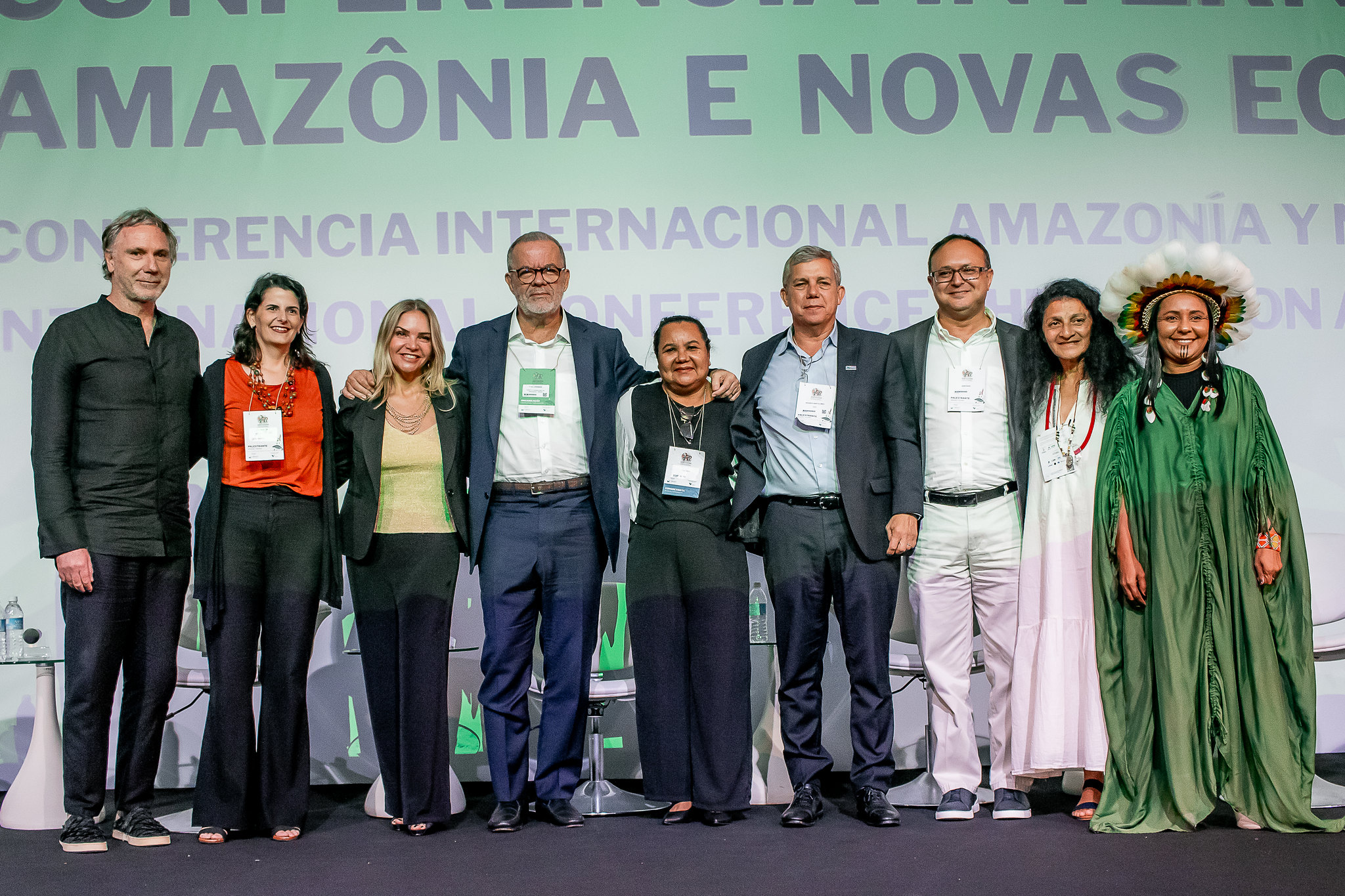Panel debates challenges and opportunities in the Amazon

At a table with great diversity, panelists present achievements and demands of the Amazonian peoples
The inaugural table of The Amazon and New Economies International Conference The theme was “What the Amazon offers & what the world needs”. Mediated by journalist Leila Sterenberg, the activity closed the first day of the event and brought together leaders from the business sector, traditional peoples and communities and the government of Pará around some fundamental points in the debate on the transition to the green economy.
First to speak, the secretary of Traditional Peoples of Pará, Puyr Tembé, highlighted the role of the State in defending and promoting public policies for traditional peoples and communities. “I’m talking about populations that have been here for thousands of years, although it seems that people have now awakened to these people. We cannot talk about a sustainable Amazon and not talk about guaranteeing the territories of these peoples. It is the role of the State to defend the people who are here.”
Then, Neidinha Suruí, from Kanindé Ethnoenvironmental Defense Association, celebrated the seed that is being planted in relation to strengthening dialogue between the business community and the local population, indigenous people and maroon communities (quilombolas). “However, this seed needs to be watered. There is no point in being here having a beautiful discussion, talking about sustainable development when the practice is different. We are open to talk, but with demarcation of indigenous land, quilombo land, and with respect for socio-biodiversity”.
Responding to the indigenous representative’s speech, the president director of Brazilian Mining Institute (IBRAM), Raul Jungmann, highlighted that “those who do mining and those who live in the Amazon are in the same boat”, referring to the common responsibility of working for sustainable development. “Either there is a way out for everyone or there is no way out for anyone.” Jungmann reinforced that the way the sector can contribute is by working to collaborate with the living forest, respecting the populations, but also seeking solutions.
When marking the 40 years of operation of Vale in the region, the company’s CEO, Eduardo Bartolomeo, highlighted that “sustainable development means leaving the forest standing and people living with dignity”. The director of the Filha do Combu Chocolates and Craft Sweets, Izete dos Santos Costa, Nena, highlighted the difficulty of accessing machinery and innovations as an aspect to be overcome on the path to new economies. “Today we talk a lot about sustainability, but people in the forest are not given access to technology for this, to facilitate the sustainable extraction of everything we have in the forest”.
With a strong speech, Joanna Martins, CEO and director of operations at Manioca, highlighted the need to value Amazonian gastronomy and food culture. “We don’t want to be suppliers of raw materials, but of solutions to be built together with us. I have no doubt that gastronomy is a soft power extremely powerful not only for the Amazon, but for Brazil as a whole”. In addition, present at the debate, the CEO of Bemol, Denis Minev, criticized the country’s low ambition in relation to the Amazon. “Brazil never chose the Amazon as its development focus. It has always been a secondary, problematic area and never an area from which the country can reinvent itself.”
Finally, Oskar Metsavaht, founder of Osklen, of Instituto-E and goodwill ambassador for UNESCO for Sustainability, highlighted fashion’s ability to create perception of value and transform commodities into useful products desired by the community.
About the Conference
The Amazon and New Economies International Conference is promoted by the Brazilian Mining Institute (IBRAM), a non-profit organization that brings together more than 130 companies and institutions that operate in the mining sector and are committed to protecting the Amazon. IBRAM and its members are committed to innovations in the sector and to disseminating the best business and environmental practices.
The event brings together representatives of the peoples of the forest, civil society, academia, the public and private sectors in the capital of Pará to address issues involving the environment, the economy and sustainable development.
Follow the Conference on social media:

